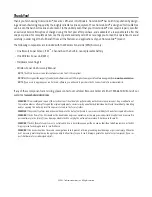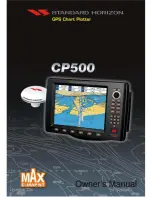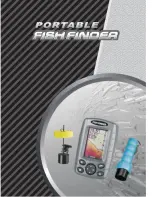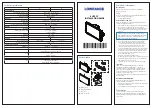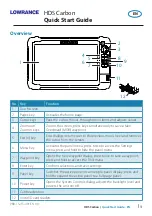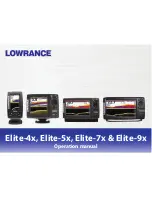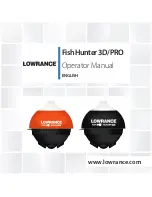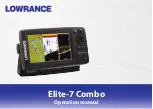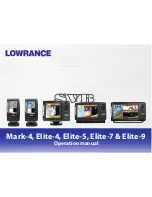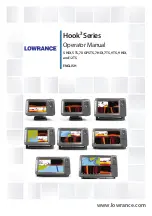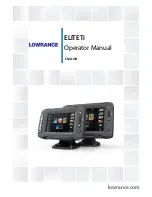
How the WSL Works
The Wireless Sonar Link (WSL) is a line-of-sight accessory that works with your Fishfinder to receive remote sonar signals
from a Remote Sonar Sensor (RSS). Radio signals from the RSS are received by the WSL and are transmitted over the
Accessory Bus to the control head. The control head displays the remote sonar information in a variety of formats.
The WSL is a first-of-its-kind wireless Fishfinder that is incredibly easy to use. Simply attach the Remote Sonar Sensor (RSS)
to the end of your fishing line and cast it into the water as you would a normal float or lure. Then power on the control
head (with WSL attached and the correct version of control head software loaded) and you are ready to fish.
The WSL system uses sonar technology to send sound waves from the RSS into the water. The returned "echoes" are trans-
mitted with wireless technology to the WSL and are plotted on your control head display.
New information appears on the right of the display. As this information moves to the left a very accurate picture of the
underwater world is created, including the display of underwater objects such as the bottom, fish, and structures, as well
as the depth of the bottom.
WARNING!
The electronic parts in the Remote Sonar Sensor (RSS) are made to withstand use when casting into water. Because shock from
abrupt contact with rocks can damage your RSS, we do NOT recommend using your RSS in water that is less than one foot (0.3 m) deep.
Operational Modes
The RSS can be used to augment the sonar data retrieved by your control head in two distinct ways:
Sonar Graph:
The RSS can be used to create a sonar graph of the bottom. Cast the RSS into the water beyond an area of
interest. Retrieving the RSS slowly and steadily will produce a screen detailing structure, fish and bottom detail.
Stationary Float:
The RSS can be used as a float in a stationary location to monitor the area below, giving you a live update
as fish approach your bait.
Installation Overview
There are several installation tasks that you must perform before you are ready to use your Wireless Sonar Link Accessory:
• You will need control head version 2.100 or higher software in order to use your WSL. Your control head may already be
running the correct software version. If not, you can obtain an upgrade free of charge from www.humminbird.com
website. You will need to purchase the PC Connect Cable in order to load the update into the control head.
• Mount the WSL at a high place on your boat so that it is in direct line-of-sight with the RSS. Stem mounting is recom-
mended (stem is not included.)
• Once the antenna is mounted on the boat, you will route the cable between the antenna and the control head, and plug
it either directly into the control head or into the accessory bus daisy chain.
• Attach the RSS to a fishing line of the proper strength.
Once you have performed all these tasks, and powered on the control head, you will be ready to use your Wireless Sonar
Link Accessory.

